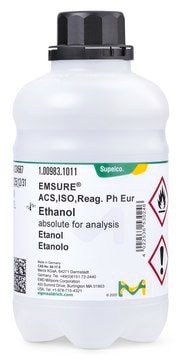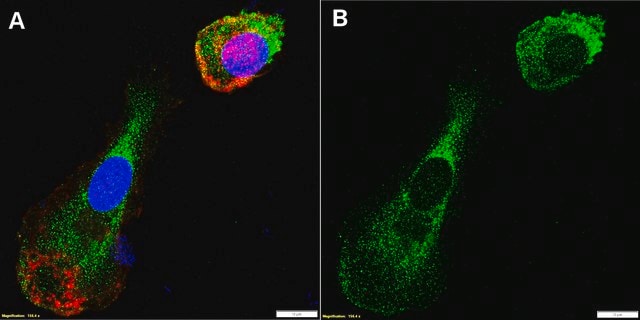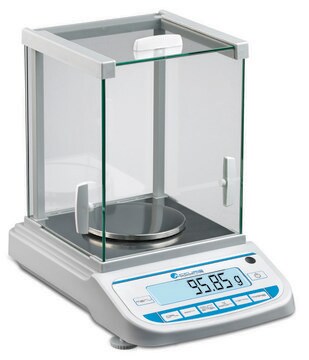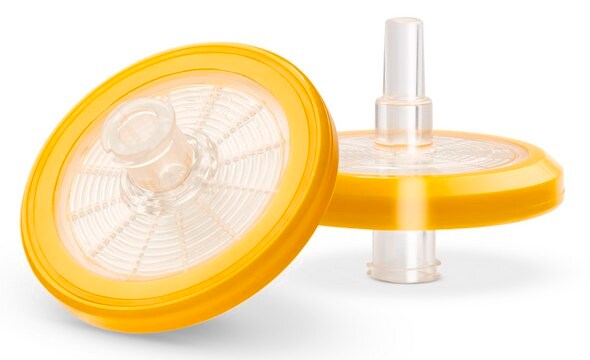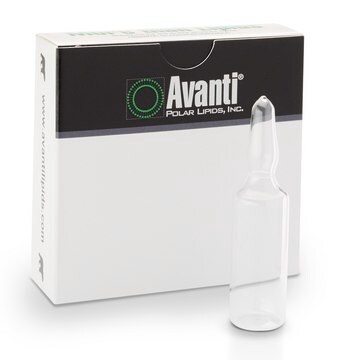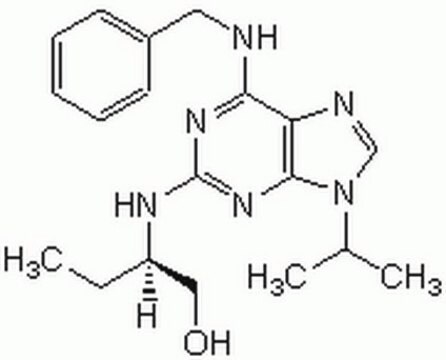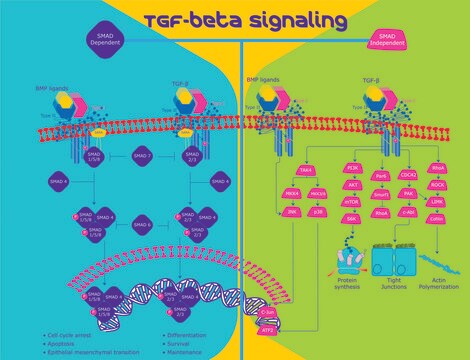ZMS1235
Anti-ApoB Antibody, clone MB47 ZooMAb® Mouse Monoclonal


recombinant, expressed in HEK 293 cells
Synonym(e):
Apolipoprotein B-100, Apolipoprotein B-48 (Apo B-48)
About This Item
Empfohlene Produkte
Biologische Quelle
mouse
Qualitätsniveau
Rekombinant
expressed in HEK 293 cells
Konjugat
unconjugated
Antikörperform
purified antibody
Antikörper-Produkttyp
primary antibodies
Klon
MB47, recombinant monoclonal
Beschreibung
recombinant, expressed in HEK 293 cells
Produktlinie
ZooMAb® learn more
Form
lyophilized
Mol-Gew.
calculated mol wt 515.54 kDa
observed mol wt ~515 kDa
Aufgereinigt durch
using protein G
Speziesreaktivität
human
Speziesreaktivität (Voraussage durch Homologie)
guinea pig, porcine, canine, rabbit
Verpackung
antibody small pack of 25
Grünere Alternativprodukt-Eigenschaften
Waste Prevention
Designing Safer Chemicals
Design for Energy Efficiency
Learn more about the Principles of Green Chemistry.
Erweiterte Validierung
recombinant expression
Learn more about Antibody Enhanced Validation
sustainability
Greener Alternative Product
Methode(n)
immunocytochemistry: suitable
immunohistochemistry: suitable
western blot: suitable
Isotyp
IgG2aκ
Protein-ID-Hinterlegungsnummer
UniProt-Hinterlegungsnummer
Grünere Alternativprodukt-Kategorie
Versandbedingung
ambient
Lagertemp.
2-8°C
Angaben zum Gen
human ... APOB(338)
Allgemeine Beschreibung
Spezifität
Immunogen
Anwendung
Evaluated by Western Blotting in HepG2 cell lysate.
Western Blotting Analysis: A 1:1,000 dilution of this antibody detected ApoB in HepG2 cell lysate.
Tested Applications
Western Blotting Analysis: A 1:1,000 dilution from a representative lot detected ApoB in human plasma lysates.
Immunohistochemistry (Paraffin) Analysis: A 1:100 dilution from a representative lot detected ApoB in human liver tissue sections.
Immunocytochemistry Analysis: A 1:100 dilution from a representative lot detected ApoB in HepG2 cells.
Note: Actual optimal working dilutions must be determined by end user as specimens, and experimental conditions may vary with the end user.
Zielbeschreibung
Physikalische Form
Rekonstituierung
Lagerung und Haltbarkeit
Rechtliche Hinweise
Haftungsausschluss
Sie haben nicht das passende Produkt gefunden?
Probieren Sie unser Produkt-Auswahlhilfe. aus.
Lagerklassenschlüssel
11 - Combustible Solids
WGK
WGK 2
Flammpunkt (°F)
Not applicable
Flammpunkt (°C)
Not applicable
Analysenzertifikate (COA)
Suchen Sie nach Analysenzertifikate (COA), indem Sie die Lot-/Chargennummer des Produkts eingeben. Lot- und Chargennummern sind auf dem Produktetikett hinter den Wörtern ‘Lot’ oder ‘Batch’ (Lot oder Charge) zu finden.
Besitzen Sie dieses Produkt bereits?
In der Dokumentenbibliothek finden Sie die Dokumentation zu den Produkten, die Sie kürzlich erworben haben.
Unser Team von Wissenschaftlern verfügt über Erfahrung in allen Forschungsbereichen einschließlich Life Science, Materialwissenschaften, chemischer Synthese, Chromatographie, Analytik und vielen mehr..
Setzen Sie sich mit dem technischen Dienst in Verbindung.